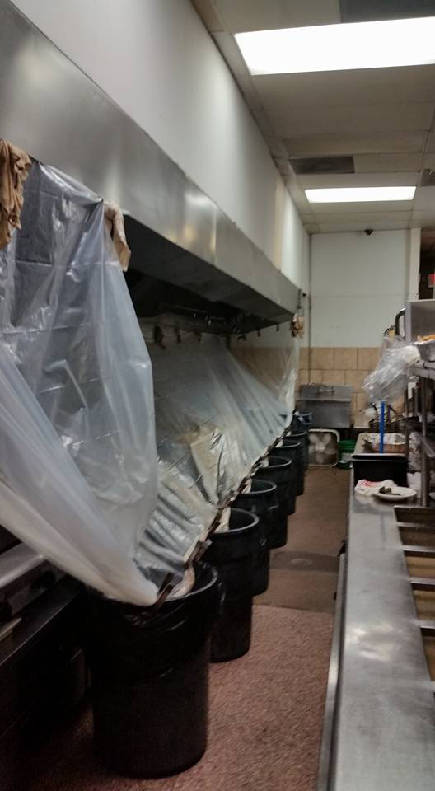Mastering Hood Cleaning for Optimal Ghost Kitchen Performance
Understanding the Unique Needs of Ghost Kitchens
Ghost kitchens, also known as delivery-only restaurants, have become a staple in modern urban dining, especially in bustling cities like San Jose. These kitchens maximize efficiency by bypassing traditional in-house dining experiences and focusing purely on food preparation and delivery. While this model presents various benefits, it also introduces specific operational challenges, particularly in the realm of hood cleaning — an oft-overlooked yet crucial aspect of kitchen maintenance.
The Importance of Restaurant Hood Cleaning
Whether you’re running a full-scale restaurant or a compact ghost kitchen, the importance of keeping your kitchen equipment clean cannot be overstated. Proper restaurant hood cleaning is essential for maintaining a safe and efficient kitchen environment. In ghost kitchens, where space and time are optimized for turnover, ensuring that hoods and exhaust systems are regularly and thoroughly cleaned is crucial to preventing grease buildup, potential fire hazards, and maintaining air quality.
The Role of Exhaust Hood Cleaning in Kitchen Safety
Hood systems are designed to capture and exhaust grease-laden vapors, smoke, and odors generated during cooking. In ghost kitchens, the velocity of operations often means these systems work harder, thus accumulating grease and particulates at a faster rate. Regular exhaust hood cleaning becomes vital to prevent fires and ensure efficient ventilation, which is crucial in tightly packed urban settings like San Jose where these kitchens predominantly operate.
Commercial Kitchen Hood Cleaning Regulations
Compliance with local and national fire safety standards is a must for every commercial kitchen, including ghost kitchens. The National Fire Protection Association (NFPA) sets the standards for kitchen equipment, establishing that commercial kitchen hood cleaning should occur at minimum every three to six months, depending on the volume and type of cooking.
Failing to adhere to these standards can lead to serious ramifications. Poor hood maintenance not only poses a fire hazard but can also result in fines, health code violations, and a potential shutdown by local authorities. San Jose ghost kitchens should diligently follow these guidelines to ensure they remain in compliance and safe operations.
Challenges Specific to Ghost Kitchens
- Space Constraints: Ghost kitchens typically operate in much smaller spaces compared to conventional kitchens. This necessitates more frequent hood cleaning to manage grease buildup and ensure adequate ventilation.
- High Turnover Rate: With food orders coming in rapid succession, the kitchen equipment, including hoods, faces constant use, contributing to quicker grease accumulation.
- Lack of In-House Expertise: Many ghost kitchens function with minimal staff, focusing mainly on cooking and not maintenance, making it essential to outsource hood cleaning to professionals.
Finding Professional San Jose Hood Cleaning Services
Given the unique challenges ghost kitchens present, outsourcing to qualified San Jose Hood Cleaning services is a prudent choice. Not only can these professionals offer comprehensive cleaning solutions, but they also ensure compliance with the required safety standards.
Choosing the right service involves looking for companies with certifications, experience in handling commercial kitchens of all sizes and styles, and a clear understanding of the needs specific to ghost kitchens. A reliable service will inspect, clean, and maintain the entire exhaust system, ensuring all components like fans, ducts, and filters are grease-free and functioning efficiently.
The Future of Ghost Kitchen Operations
As the food industry continues to evolve, ghost kitchens will likely expand, playing an even larger role in urban food delivery networks. This shift will necessitate more stringent regulations and innovative cleaning solutions that cater specifically to this unique operational model. Embracing sustainable and time-efficient cleaning technologies can aid kitchen operators in not only maintaining hygiene but also in reducing downtime.
Ultimately, proper commercial kitchen hood cleaning is not just about adhering to standards but about safeguarding the kitchen, its employees, and the brand itself. With the rise of ghost kitchens in thriving locations like San Jose, the culinary landscape is set to become even more intricate, necessitating smarter, faster, and more robust cleaning and maintenance solutions.
Conclusion
In the dynamic world of ghost kitchens, a proactive approach to maintenance is essential. By focusing on hood cleaning, restaurant owners can ensure safety, compliance, and optimal operations. Investing in professional cleaning services is a strategic move that saves on cost, time, and headaches down the line, allowing kitchen operators to focus on what they do best – creating delightful dishes for delivery.







